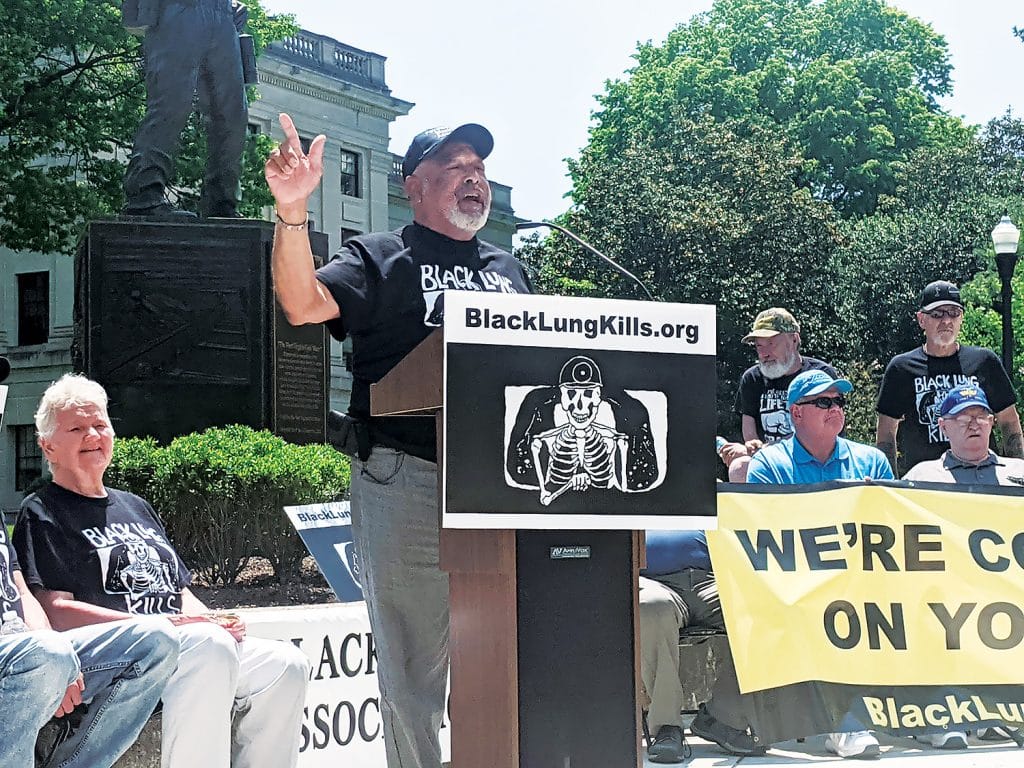Contact:
Ben Luckett, Appalachian Mountain Advocates, 304-645-125, bluckett@appalamad.org
Anne Havemann, Chesapeake Climate Action Network, 240-396-1984 anne@chesapeakeclimate.org
Kirk Bowers, Va. Chapter of Sierra Club, 434-296-8673, kirk.bowers@sierraclub.org
Hannah Wiegard, Appalachian Voices, 434-293-6373, hannah@appvoices.org
The proposed 564-mile Atlantic Coast Pipeline that would carry natural gas fracked in West Virginia through Virginia to North Carolina is not needed, would cause irreparable harm to the environment and private property, and should be denied, according to documents being filed today by 16 environmental groups.
On behalf of numerous groups in Virginia and West Virginia (listed below), Appalachian Mountain Advocates filed with the Federal Energy Regulatory Commission (FERC) a motion to intervene in the permit process for the project and a formal protest. In addition, the groups are asking for an evidentiary hearing. (Download PDF of the filing.)
Dominion Transmission, Inc., and Atlantic Coast Pipeline, LLC filed an application with FERC on September 21, 2015, to build the interstate gas pipeline. FERC is tasked with determining whether the pipeline will serve the “public convenience and necessity” and coordinating an environmental review of the pipeline. If FERC determines that the harm from the pipeline outweighs the benefit, it is supposed to deny the application.
In their 50-page filing, the environmental groups describe in detail how the companies presented flawed and exaggerated information about the need for the pipeline, while ignoring the impacts to the environment, landowners, communities and the general public, as well as the economic and environmental benefits of cleaner sources of energy that development of the pipeline would displace. In particular, the project would:
- Fragment the heart of the largest remaining wild landscape in the eastern U.S.;
- Cut through farms that have been held in families for generations, severing people’s attachment to their home place;
- Lower property values in the vicinity of the pipeline and gas production areas;
- Exacerbate health and environmental threats in communities near the gas drilling; and
- Further commit the nation to long-term dependence on climate-altering fossil fuels.
Ben Luckett, Staff Attorney with Appalachian Mountain Advocates: “The Atlantic Coast Pipeline makes no sense. The pipeline would disrupt some of the most biodiverse forests and critical waterways in the nation, in addition to disturbing and endangering countless farms, homes, and communities. The harm to the land and people caused by fracking operations in the Marcellus region would only increase with the construction of the pipeline. Maybe worst of all, a major infrastructure investment like this would lock us into continued reliance on dirty, climate-altering fossil fuels. We need to be looking at how we can meet our power demands and stimulate our economy by rapidly scaling up our use of clean, renewable energy sources, the technology for which exists and is improving every day.”
Anne Havemann, General Counsel for the Chesapeake Climate Action Network: “The Atlantic Coast Pipeline will lock Virginia and the region into decades of reliance on a fossil fuel that is just as bad as coal for the climate. FERC must account for the greenhouse gas pollution triggered by this project at every step, from fracking to piping to eventual burning of the gas. If FERC does its job, it will be clear that wind, solar and energy efficiency alternatives are the way to go, especially with worsening storms and flooding already wreaking havoc across Virginia.”
Kirk Bowers, Pipelines Campaign Manager, Virginia Chapter, Sierra Club: “The Atlantic Coast Pipeline severely impacts our water resources, fragments more than 50 miles of national forest property, impacts the Blue Ridge Parkway and Appalachian Trail, significantly decreases property values and increases our dependence on fracking natural gas for power generation. Our children’s and grandchildren’s future depend on decreasing consumption of natural gas to avoid devastating climate disruption. Dominion’s plan to use natural gas as a power source jeopardizes the future of generations to come.”
Beth Little, Atlantic Coast Pipeline Coordinator with the West Virginia Chapter of the Sierra Club: “Dominion doesn’t follow the rules. They have filed an incomplete application with FERC, according to the Army Corps of Engineers, the Bureau of Land Management, and the US Forest Service. They had so many violations on pipelines in West Virginia that the WV DEP, after pursuing them for over two years, had them sign a Consent Decree to clean up their act and pay fines. If even government agencies can’t get them to act right, what can we expect?”
Hannah Wiegard, Virginia Campaign Coordinator with Appalachian Voices: “Appalachian communities have been hard-hit by the fracking boom, and now face the threat of a huge natural gas pipeline that would be built over steep mountain slopes, cross dozens of streams, and cut through vital public lands and private farms. Not only would the pipeline worsen the impacts of fracking in those communities, it would lock us into decades of dependence on dirty energy and divert investment away from cleaner, more sustainable energy sources.”
Groups filing motions to intervene:
Appalachian Mountain Advocates, Appalachian Voices, Chesapeake Climate Action Network, Doddridge County Watershed Association, Eight Rivers Council, Greenbrier River Watershed Association, Satchidananda Ashram-Yogaville, Inc., Shannon Farm Community, Sierra Club, West Virginia Rivers Coalition and West Virginia Highlands Conservancy.
Groups filing the formal protest: All the above groups, plus five others which had previously filed their own motions to intervene: Augusta County Alliance, Dominion Pipeline Monitoring Coalition, Friends of Nelson, Heartwood and Wild Virginia.
###



